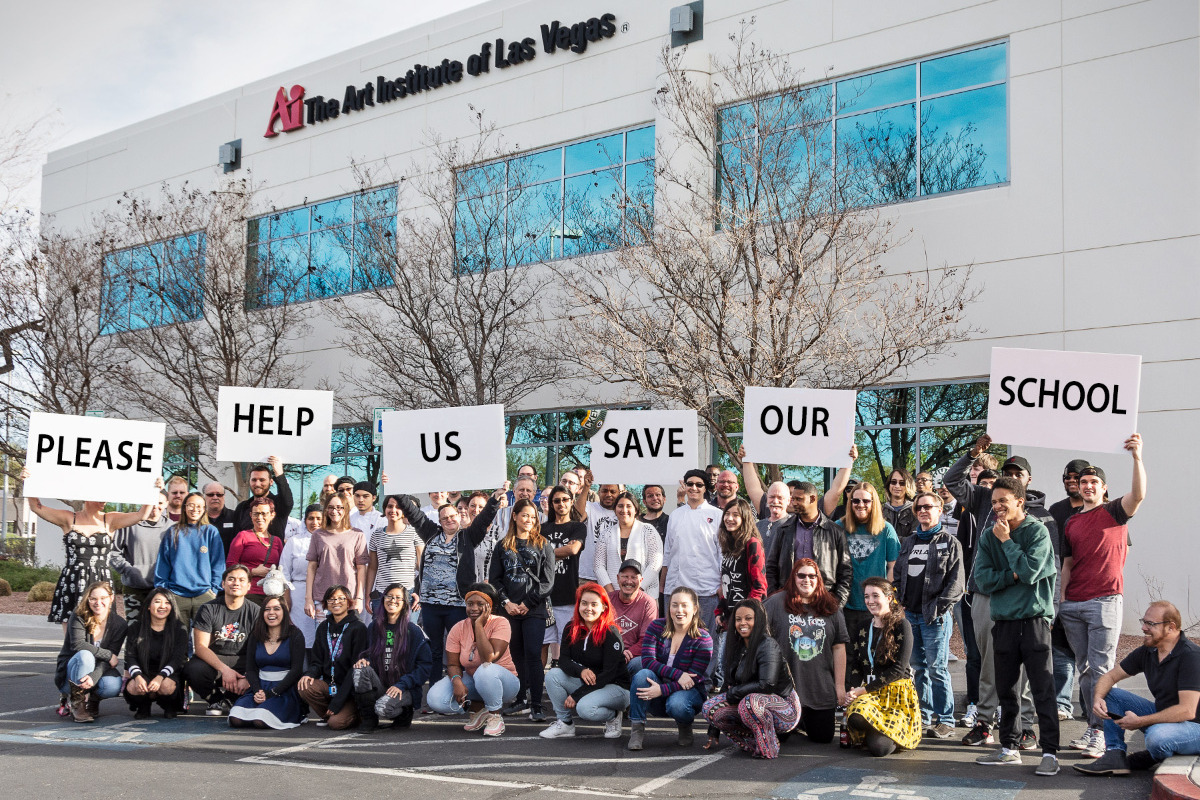
The Art Institutes, a collection of for-profit colleges, has abruptly announced plans to shutter its eight remaining campuses, effective September 30. The move caps the last and darkest chapter for the business, a period marked by ownership changes, lawsuits, declining enrollment numbers, and the loss of accreditation at several of its branches.<
Art Institute campuses will close in Atlanta, Austin, Dallas, Houston, Miami, San Antonio, Tampa, and Virginia Beach. An estimated 1,700 students will be affected, according to the Department of Education.
Students and faculty were informed of the decision in an email on September 22—just over a week before their schools would be shut down for good.
“A culmination of events over the past decade, both external and internal to the campus operations, has forced the closure of this system of colleges,” the message said, per local reports. “Most notably, the colleges, which already were dealing with the legacy challenges that arose under prior ownership, were unable to absorb the impact that the COVID-19 pandemic had on schools teaching hands-on and equipment-intensive programs such as culinary arts and fashion design.”
When the announcement went wide, the Art Institutes’s website had already been wiped and replaced with a single landing page with resources for students. “The Art Institutes are working with numerous partners to facilitate student transfers,” the page reads. Whether or not other schools will accept the for-profit college’s credits remains a question for some students, however.
The Art Institutes did not respond to request for comment.
A screenshot of the landing page on the Art Institutes’s website.
The suddenness of the closures came as a surprise to many, but for the school system, this outcome had been on the horizon for years.
The Art Institutes launched in 1970 when the Education Management Corporation purchased the Art Institute of Pittsburgh. The system continued to grow in the ensuing years, largely through additional acquisitions. In 2001, the Art Institutes owned 20 campuses; by 2012, there were 50.
But the recession and a series of scandals halted the business’s momentum. Tuition numbers grew as enrollment figures shrunk. In 2014, multiple Art Institutes were placed under heightened cash monitoring by the U.S. Department of Education. That same year, an investigation conducted by the City Attorney of San Francisco found that California campuses had distorted program costs and job placement rates, leading to a $4.4 million settlement.
Fifteen Art Institutes closed in 2015. Four more followed in 2016, while several other campuses were stripped of their accreditation. In some cases, students were not informed that their schools were no longer accredited.
In 2017, the Education Management Corporation sold the business to Dream Center Education Holdings, a nonprofit subsidiary of a California-based megachurch. More Art Institutes locations closed within the next year, and the U.S. Congress launched an investigation into allegations that the Dream Center deliberately deceived and defrauded students.
In 2019, Dream Center surrendered ownership of 12 of the 14 remaining Art Institutes branches. The schools were subsequently transferred to the Delaware-based nonprofit, Education Principle Foundation.
More Trending Stories: